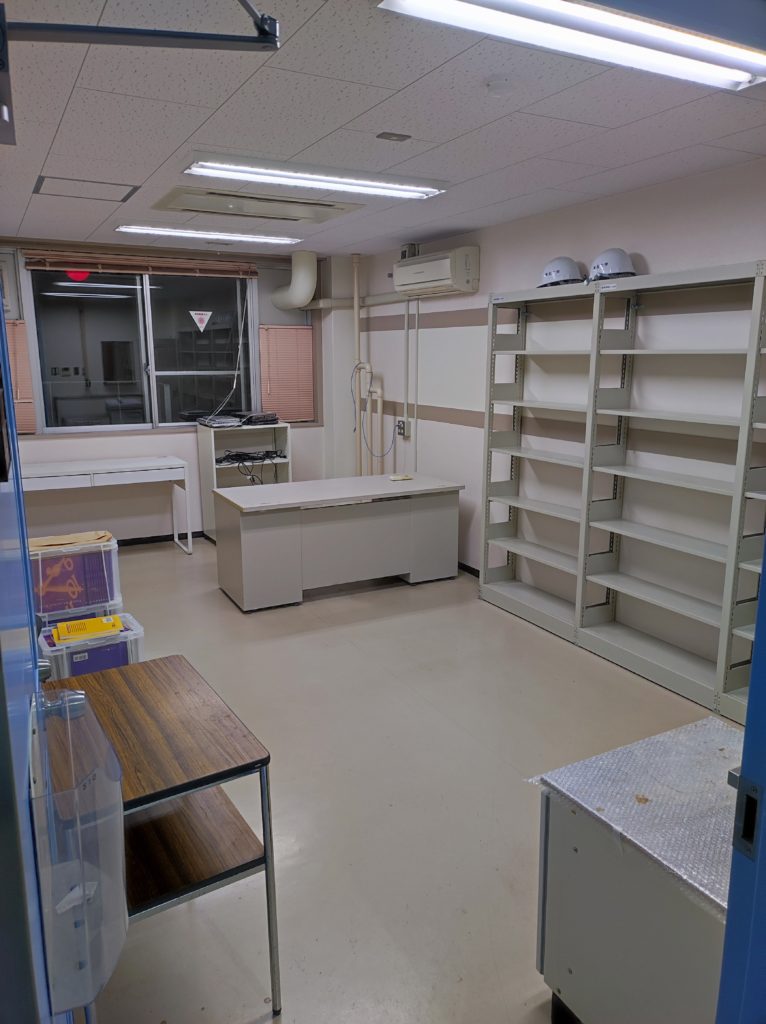Four Day Teaching Week

I’ve been helping my wife to run her school, Cambridge English in Sendai, for almost twenty years now. One of our main goals is to make it the best working environment possible.
A couple of years ago I had an idea: what if we could cut the teaching week to four days? Our school needs three full time teachers to teach all the classes, but that means that if someone is sick or wants to take a day off we have a problem.
And that is not fair to the teachers. They shouldn’t feel pressured to work just because we don’t have any slack in the system. But that is how things are at many small eikaiwas.
If we could just hire a fourth teacher, we would have someone to cover. It would also allow us to cut the regular teaching load from 26-7 classes a week to 20.
Each teacher would teach three weekdays and Saturday, and have one day to prep, work on projects, or cover for someone else if they couldn’t be there that day. Teachers who proved they were able to work independently could work from home on their non-teaching day.
It seems like a win-win. The teachers will be more relaxed and have time to work on our curriculum and materials and the school will become more robust.
We are not planning to reduce salaries due to this change, so our school should become a more attractive place to work, which should allow us to keep teachers for longer and have more applicants to choose from when we do need to hire someone.
Is anyone else doing a four-day teaching week or considering one?
A Farewell to Arms
Goodbye Tohoku University

Last night I finally moved the last few things out of my university office. They had been accumulating there for the last thirteen years, and I struggle with tidiness at the best of times, so getting everything organised and cleared out was an immense effort that has loomed over me for the last fifteen months.
I slept like a baby.
The best sleep I have had in a couple of years, I would say. Clearly finishing my job at Tohoku University was a big deal for me emotionally, financially, and health- and career-wise.
A mixed experience I am glad I had
My time at TU was very mixed. It was the best job I have ever had for a few years in terms of satisfaction, one of the easiest jobs I have ever had considering how well it paid, but at the same time one of the most frustrating and disappointing jobs I have ever had.
There were three distinct phases: the beginning, the middle, and the end.
The beginning
I started working at Tohoku University in April 2009. Prior to that I was unemployed/underemployed (doing part-time university teaching) for a year after losing my job at the prefectural board of education.
That happened quite suddenly when the Miyagi BOE decided to switch to dispatch ALTs from JET, and realised they didn’t need an ALT supervisor any more 😉
I think I applied in September 2008, had an interview in early December, and was notified I got the job at the end of the month.
At the time I had an MA in Oriental Studies (Chinese) and Social and Political Science (the free MA you get from Cambridge as a reward from not dying or going to prison in the three years after graduation). I also had a few dodgy academic publications.
My first boss and the person who hired me was excellent. A biologist who was in charge of our section of language teachers for some reason, he had a solid vision for what he wanted us to do (deliver better language classes) and gave us all the support we needed to do so.
Those first four years were the best of my working life. Together with a couple of colleagues, we were building truly exciting things (including the university extensive reading program, the readers’ corner in the library, and the PDR method of teaching communication classes).
I also got a second MA at this time, from The University of Birmingham in the UK. I thought this might be useful if I ever wanted to get a different job, or as preparation for doing a PhD (it is now extremely unlikely I will ever do a PhD).
The turning point
Then just as we thought things were coming together (we got a couple of awards from the university for our work on the English curriculum), we had our Icarus moment.
We had flown too close to the sun and were in for a crash landing.
First our boss left, to be replaced with someone with very different priorities and understanding of education. It took us a while to realise that everything was different, but our support was gone.
A senior colleague in a different department then tried to take over the reading program (seemingly just to make himself look good and with little background in or understanding of ER). When we refused he became abusive, then complained to our new boss about us.
The long slow decline
Since that point I stopped putting much energy into my job at the university. I still worked hard at my classes, and enjoyed teaching the excellent students we were lucky enough to get at Tohoku University, but gave up on trying to build university-wide systems.
I had misunderstood the nature of the institution, and neglected the political aspects of getting things done.
I applied for tenure once, but failed to get it (I was told my relative lack of publications held me back: a colleague that got tenure at the same time was told his strong teaching background made up for his complete lack of them).
One highlight was developing an elective course on personal finance: the students who joined the class went from largely financially illiterate at the start to being able to explain key aspects of personal finance by the end (all in English). That was a lot of fun and I felt I was changing lives.
The end
In March 2021 I received the following short email from my boss:

It basically says: “be aware that your contract will end on March 31st 2022, and it will not be renewed.”
That seemed a bit cold after 13 years at the university, but was pretty much par for the course at that point.
In a way I was relieved. I had been doing a lot of thinking about what I might do when my contract was up. I had half expected that permanent employment might be available in some form (we had been told this at various points since being hired), but was also thinking about moving on and trying something different.
This email basically decided it for me.
The ‘five-year rule’ for permanent employment did not apply to us, as according to the university we were ‘researchers’ and thus would not be eligible for permanent employement until 2023.
There was probably some kind of legal case there, but I didn’t feel like jumping through hoops to keep a job I didn’t really like all that much any more, and that didn’t want me.
What is next?
Well, the original plan was to take it easy for a bit, maybe claim unemployment insurance (I would be eligible for about six months’ worth, starting immediately). I will also be getting a retirement bonus of 14.4 months base salary, which is about the same as my annual take home salary including bonuses.
I’m 44 now, which puts me at the half-life point according to my estimates. Accordingly, I’ve been planning a big trip to celebrate for a few years now, traveling around the world and visiting people I care about.
Covid, and the demands of my wife’s business (she runs an English school that I help out with) have put paid to both those plans.
I’ll be helping out at the school on a full-time basis for a while, and round-the-world travel doesn’t seem very sensible right now.
So it’s not what I was expecting, but I can see some positives.
Life goes on and remains interesting.
Our Fluency Course materials for JHS students are selling well, and RetireJapan remains a source of joy in my life.
I remain very lucky.
Time to leave?
How do you know?
A recent series of events has started me thinking. On Friday, we had a meeting at work to talk about possibilities for promotion and tenure. On Saturday, I had a talk with my wife about it, and that evening, I received a very timely email.
The short version of the meeting is that I may be eligible for promotion and tenure in three years, at my employer’s convenience. This is kind of disappointing, as I was expecting that to be the case this year.
The conversation with my wife was even more unexpected, as she ended up saying ‘if they aren’t going to give you a proper job, maybe it’s time to look for one elsewhere, even if that means a move’.
The email is pretty self-explanatory.
The two combined really started me thinking. I’ve been pretty happy at work so far, and it’s been an interesting and satisfying six years (normally I get bored after three!). However, I don’t know if I am going to learn all that much going forward, particularly without being promoted. Three years of the same doesn’t seem that attractive…
I’ll have a chat with a sympathetic senior colleague next week and see what he says. Also, if you know of any interesting job opportunities from April 2016 please let me know about them 🙂
high school jobhunting Language learning op-ed study abroad university
by sendaiben
7 comments
Japanese Students Studying Abroad
Here is an interesting article about Japanese students and the demand for study abroad programs (thanks Glenski).
*image stolen from the MOFA website
This seems to be a perennial topic of discussion, and there is much hand-wringing about how few students actually plan to study overseas.
To me this seems quite simple: I believe students are on the whole rational actors. Facing them are a range of issues:
- there are significant financial costs associated with studying overseas
- there is limited support for students to study overseas from universities and schools (generally students have to take time off from their studies)
- companies pay lip service to internationalization, but study abroad does not seem to help with job hunting and in fact hinders it greatly if students are away in their third and fourth years
- students don’t have the necessary language skills to study abroad after going through the normal English educational system in Japan
If these factors were flipped, particularly the third one, I am sure we would see interest rise.
What do you think? Is the system at fault or are Japanese students really the passive, docile, unadventurous generation that some media tries to make them out to be?
career expectations jobhunting life in Japan presentations public policy technology TED
by sendaiben
leave a comment
TED Talk: What will future jobs look like?
Here’s an optimistic TED talk on yesterday’s topic (thanks Tom!).

